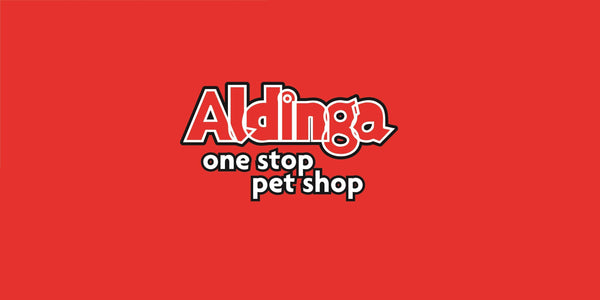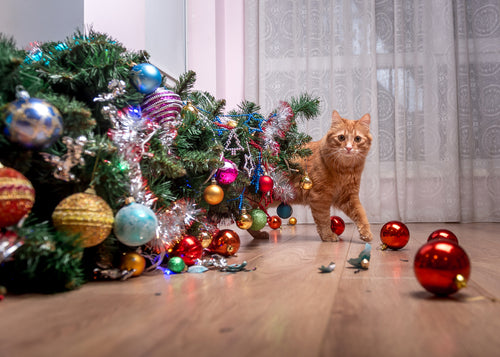The festive season brings a flurry of excitement for people and their pets, but in between hanging tinsel and glazing ham it’s important to keep health and safety in mind. From summer heat, to electrical hazards, and unfamiliar places, there are plenty of potential problems facing pets and their owners. Here’s a list of common issues and how to avoid them as you prepare for the New Year period.
Heat stress
The festive season falls in summer in the Southern Hemisphere, bringing potentially scorching temperatures that affect our animals just as much as us. In fact, heat stress in animals can be fatal, so keeping our pets cool is a task to be taken seriously.
You can keep your pet comfortable by creating a cool resting place in the shade, with adequate airflow and a consistent supply of fresh drinking water.
Dogs should also be exercised at the coolest time of day to avoid searing sunshine and surfaces that can burn their paws.
Particular attention needs to be paid to flatter-faced ‘brachycephalic’ dog breeds, such as pugs, which find it more difficult to cool down by panting.
When travelling, use air conditioning and never leave a pet in a vehicle unattended.
If you suspect your pet has heatstroke, the RSPCA recommends applying room temperature water to their fur/skin and seeking veterinary help immediately.
Ticks
Ticks are present all year, but hot and humid weather can increase the risk to your pets. Check your pets for ticks daily, and make sure they are up-to-date with your choice of tick preventative treatments.
If you find a tick on your pet, remove it immediately (preferably with a tick puller) and take the tick with your animal to the vet.
The longer a tick feeds on an animal, the greater the chance of paralysis, severe illness or death.
Festive food hazards
Many of us have been guilty of slipping treats to begging pets underneath the dinner table, however some festive foods are dangerous to domestic animals and should be kept out of reach.
Chocolate is toxic to dogs and cats and can cause significant illness or death. Fruit mince pies often contain grapes, raisins and sultanas that can cause permanent kidney damage in dogs. While onions and garlic can also lead to life-threatening conditions in both dogs and cats.
And it’s not just potentially toxic foods that can cause issues. Simple over-eating, particularly of high-fat foods like processed meats and cheeses, can cause upset stomachs and trigger longer term conditions such as pancreatitis.
Decorations
Tinsel, trees and other decorations are enticing potential play-things for pets. However, they can put your animal of risk of strangulation, electrocution, or choking.
Position decorations out of reach of animals, especially lights or electric devices with moving parts.
You may also consider using safety barriers or gates to prevent your pets from approaching hazards like Christmas trees or present piles. Many animals also detest aluminium foil, and some pet owners have had success building foil ‘skirts’ for their Christmas trees to deter cats and dogs.
Anxiety
The festive season can also see an increase in anxiety in pets, particularly with unfamiliar guests in the home.
One of the best things pet owners can do to ease anxiety is maintain as much of a routine as possible. Keep up daily walks and other usual activities, and ensure your pet maintains a safe space in the home.
If your pet displays worrying behaviours that aren’t easily resolved, seek advice from your vet or speak to your Just For Pets Independent pet shop for some anxiety toys or calming solutions..
Pet presents
For those who want to place a gift for their pet friends under the tree, make sure whatever you choose is safe.
Your local Just For Pets independent pet store has a huge range of toys and treats to make sure all the pets in your life have a present under the tree.
If you’re going away
Finally, if you’re celebrating the festive season by heading off on holidays, consider pet-friendly destinations.
If you need to leave your pet at home, you will need to research reputable pet-sitters or boarding/cattery providers. It’s always a good idea to meet them in-person beforehand and see how your pet responds to their care.

